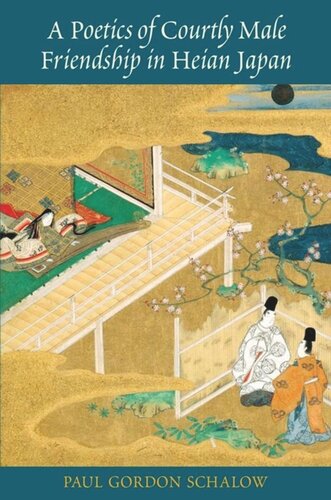

Most ebook files are in PDF format, so you can easily read them using various software such as Foxit Reader or directly on the Google Chrome browser.
Some ebook files are released by publishers in other formats such as .awz, .mobi, .epub, .fb2, etc. You may need to install specific software to read these formats on mobile/PC, such as Calibre.
Please read the tutorial at this link: https://ebookbell.com/faq
We offer FREE conversion to the popular formats you request; however, this may take some time. Therefore, right after payment, please email us, and we will try to provide the service as quickly as possible.
For some exceptional file formats or broken links (if any), please refrain from opening any disputes. Instead, email us first, and we will try to assist within a maximum of 6 hours.
EbookBell Team

4.3
58 reviewsWestern scholars have tended to read Heian literature through the prism of female experience, stressing the imbalance of power in courtship and looking for evidence that women hoped to move beyond the constraints of marriage politics. Paul Schalow’s original and challenging work inherits these concerns about the transcendence of love and carries them into a new realm of inquiry—the suffering of noblemen and the literary record of their hopes for transcendence through friendship. He traces this recurring theme, which he labels "courtly male friendship," in five important literary works ranging from the tenth-century Tale of Ise to the early eleventh-century Tale of Genji.
Whether authored by men or women, the depictions of male friendship addressed in this work convey the differing perspectives of male and female authors profoundly shaped by their gender roles in the court aristocracy. Schalow’s analysis clarifies in particular how Heian literature articulates the nobleman’s wish to be known and appreciated fully by another man.